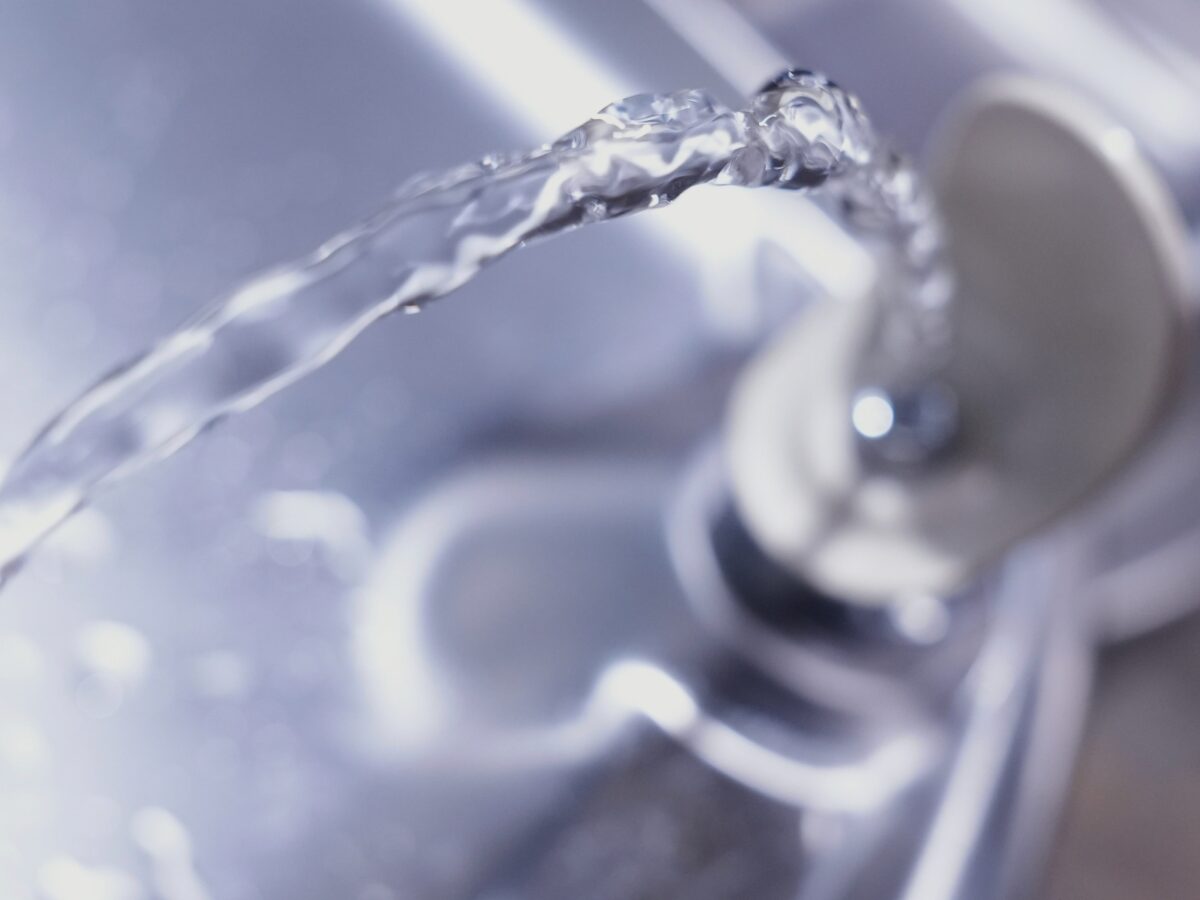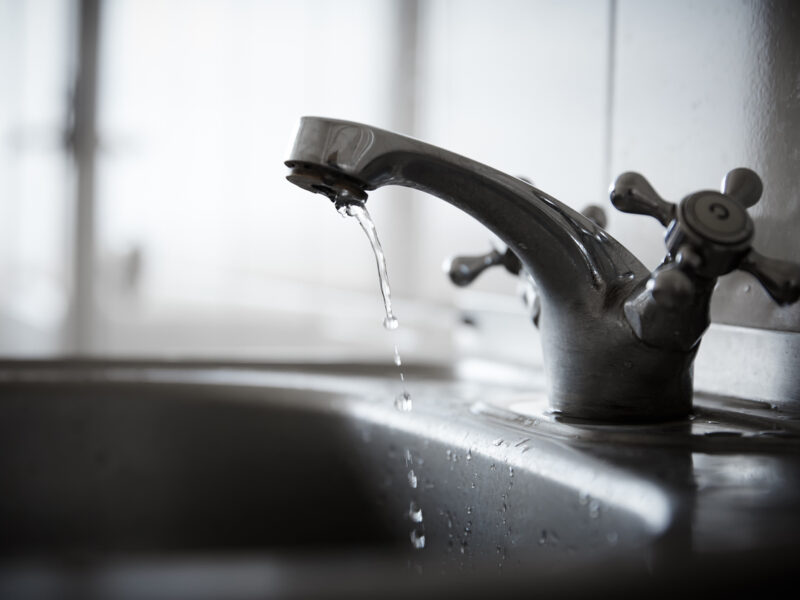Overview:
-A notice of work by the Great Lakes Water Authority that caused water discoloration downtown and on the lower east side was not released broadly to residents.
-On June 25, GLWA and the city water department apologized for the inconvenience caused by the project at Water Works Park.
-The city water department used the subscription Detroit Alerts 365 service to send out notifications about the discolored water.
Editor’s note: This story has been updated to clarify that a June 20 notice from the Detroit Water and Sewerage Department was sent directly to property managers and associations.
An hour before Stefanie Cox headed to her server job June 25, she learned from her employer that the downtown Detroit restaurant where she works was closing for the day.
An upgrade of the Great Lakes Water Authority’s water treatment facility on East Jefferson Avenue had started two days earlier, and the water utility said areas of downtown and the lower east side could potentially see cloudy water coming out of faucets.
The restaurant shut down for the day due to the water concerns. That night, she said she couldn’t help but wonder why Detroiters like herself didn’t know about the work beforehand.
A June 20 notice of the work was sent directly to property managers and associations in the impacted area, according to the Detroit Water and Sewerage Department. It was not released broadly to residents.
“The city knows when they’re planning to do some sort of flush of the system,” Cox said. “Why would they wait until the last minute to tell people we have to shut down the restaurant that day? They could have definitely let people know ahead of time.”
The water in the affected areas of Detroit was safe to drink and use at all times, GLWA spokesperson Stephen Jones told Planet Detroit: “Testing of water in the impacted areas showed no indication of any health risks.”
Change in flow stirs up sediment in Detroit drinking water
A joint notice of the impending water system work was issued June 20 by GLWA and DWSD. The notice was sent to businesses, property managers, and neighborhood associations in the affected area, according to Bryan Peckinpaugh, DWSD’s public affairs director.
The notice said some customers supplied by the Water Works Park treatment plant could experience “a temporary change in the appearance” of their drinking water during the week of June 23.
The notice instructed customers to contact DWSD if they experienced any cloudy water. From there, a crew would come to the location and flush the water main. The document did not state whether the water would be safe to drink or use while construction was taking place.
In another statement issued June 25, DWSD and GLWA apologized for any inconvenience caused by “recent valve operations.” The utilities “both strive to provide water of unquestionable quality, and we are sorry that you have experienced something less than this,” the statement said.
The notice said that GLWA uses chlorine as a disinfectant to prevent microorganisms from growing in the water. “Testing of water in the impacted area is underway; however, there is currently no indication of any health risks. Anyone feeling unwell should seek medical attention,” the statement said.
The work at the Water Works Park plant involved slowly opening and closing “critical water main gate valves” in the system, GLWA told Planet Detroit in a July 1 statement.
As the valves were opened and closed, the change in water flow direction stirred up sediment within the system, contributing to temporary discoloration.
The regional water utility said it received the first reports of discolored water midday June 24, the issue was “primarily resolved” by June 27, and crews flushed water mains in impacted areas through June 30.
Water department uses subscription alerts for cloudy water notice
On social media, some Detroiters reported seeing discolored water at their home or workplace, raising concerns about safety.
Cox, who lives on the east side, said she wasn’t concerned for her safety, but worried about residents who may not have seen the announcement of the work at the East Jefferson Avenue facility.
“I hope that nobody gets seriously sick,” she said. I know that as far as the business I work for, they made sure to watch their P’s and Q’s.”
Cox said she drinks filtered water as much as she can.
“I have a filtered water bottle in my car, and then I have my big filter jug (in my fridge) and a filter on my sink. I’m always filtering.”
DWSD’s Peckinpaugh told Planet Detroit the water department opted not to share social media posts about the cloudy water because it took place in “a very defined area, and the temporary discoloration did not impact most of the city.”
Instead, DWSD used Detroit Alerts 365, the city’s emergency alert system, to notify residents who lived in the impacted areas, Peckinpaugh said.
Alerts from the text service went out June 24 as reports of discolored water first arrived, and on June 30, once GLWA officials confirmed that all water mains in the impacted area were flushed.
Only Detroit Alerts 365 subscribers who indicated their address is downtown or on the lower east side received the message, Peckinpaugh said.
MORE REPORTING FROM PLANET DETROIT
GLWA raises $280 million for water, sewer projects with bond sale
Fitch Ratings upgrades the Great Lakes Water Authority’s sewer bonds alongside new bond deal.
What we’re reading: Drinking water runs yellow from some Detroit faucets
Severe storms left over 33,000 without power in Southeast Michigan Tuesday. DTE Energy names Joi Harris as its first female CEO.
Wyandotte to craft fluoride plan 10 years after removing it from drinking water
Wyandotte says in response to state environmental regulator that it will create a fluoride plan by October. The city discontinued drinking water fluoridation in 2015.
What should I do if my water looks cloudy or discolored?
GLWA officials advise residents to flush their pipes in instances of cloudy or discolored water.
“Discolored water and trapped air are common occurrences after a water main break or other water system maintenance work,” GLWA said in a statement. “Flushing the cold-water pipes in homes or businesses usually clears up the discolored water and will allow trapped air to be released.”
If the water continues to look discolored after running the cold-water lines for 5 minutes, residents should report their concerns to DWSD or contact GLWA’s Water Quality Team at 313-926-8143 or waterqualitylab@glwater.org if they want their water tested.
For updates on future emergencies, DWSD recommends that Detroiters register for notifications from Detroit Alerts 365. The service sends alerts citywide to all registered users, or can be targeted to specific areas that have been impacted by an emergency.





